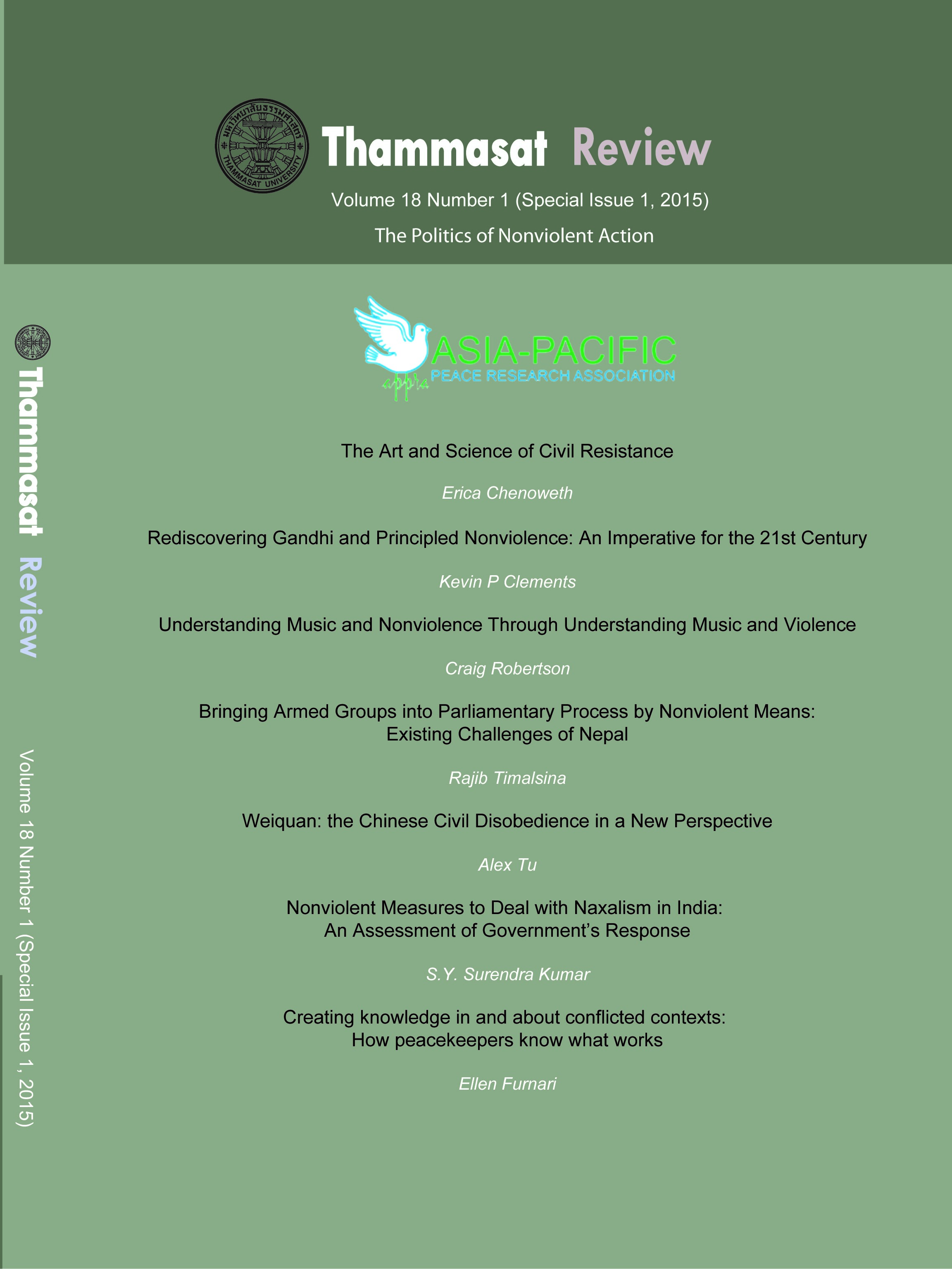Rediscovering Gandhi and Principled Nonviolence: An Imperative for the 21st Century
Abstract
“Violence is the behaviour of someone incapable of imagining other solutions to the problem at hand” Bettelheim
“I oppose all violence because the good it does is always temporary but the harm it does is permanent” Gandhi.
“Nonviolence is a Weapon of the Strong” Gandhi
“Nonviolence is fine as long as it works” Malcolm X
“Nonviolence is a flop. The only bigger flop is violence” Joan Baez
“To kill one man is to be guilty of a capital crime, to kill ten men is to increase the guilt ten-fold, to kill a hundred men is to increase it a hundred-fold. This the rulers of the earth all recognise and yet when it comes to the greatest crime--waging war on another state--they praise it..." Mozi, China 470-391 BC
This paper argues that while strategic nonviolence is necessary for the overthrow of repressive regimes it is not sufficient for the social, economic and political transformations that follow. Many of the nonviolent revolutions that have succeeded recently in overthrowing dictators and autocrats have not been successful in initiating short, medium and long term peace dividends for the people nor a radical critique of traditional approaches to governance. This paper argues that these things will only happen if nonviolent leaders and followers have a principled approach to social change. It is this which will enable a strong service oriented social and political compass. Without a deep and principled dedication to care for the welfare of others any tactical political change will founder on the rocks of pragmatic and sectional politics.
Thammasat Review 12
Analysing why individuals, groups, movements, organisations, and nations resort to (direct or indirect) violence to satisfy their interests and needs is a, if not the, major “problematique” of peace and conflict studies. Analysing individual, group, movement and national alternatives to violence has not, however, received anywhere near the same amount of academic attention. This is partly because violence is assumed to be more interesting and sexier than nonviolence; if it bleeds it leads, but it also reflects the fact that even in the richly normative discipline of peace and conflict studies we tend to be much more concerned with pathology than cure.
One of the reasons for the relative neglect of nonviolence is that there is no word which adequately explains what it is all about. Is it an ethical belief, an attitude, a tactic or a strategy, or all of the above? What has motivated people in the past to choose nonviolence and what motivates people in the present to choose nonviolence in response to life’s many dilemmas? Why in the second decade of the 21st century has there been an upsurge of both academic and political interest in nonviolence?
Downloads
How to Cite
Issue
Section
License
The opinions and ideas expressed in all submissions published in Thammasat Review are solely that of the author(s) and do not necessarily reflect that of the editors or the editorial board.
The copyright of all articles including all written content and illustrations belong to Thammasat Review. Any individuals or organisation wishing to publish, reproduce and distribute a particular manuscript must seek permission from the journal first.








